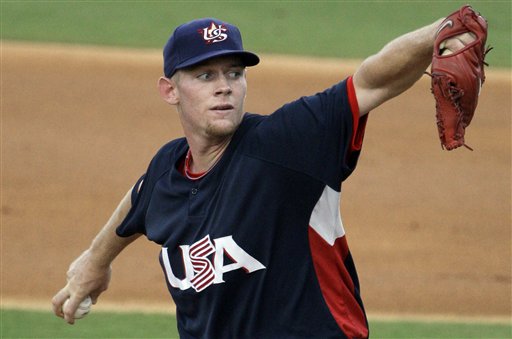"Without the city's generous grant we wouldn't be looking at breaking ground within the next few months," said Gregory McCarthy, Nationals vice president of government and municipal affairs. "Raising that much private money at the outset would have been extremely challenging in this economy."
The city has a projected budget deficit of $480 million for the next fiscal year.
The academy was part of the agreement negotiated between the D.C. Council and the Nationals to bring the club to Washington in 2005. Progress was delayed until June, when the National Park Service agreed to cede administrative control of 15 acres of federal land to the District for the academy.
That allowed the council to pass legislation last month leasing the land to the Washington Nationals Dream Foundation, which would run the academy. Additional legislation included a grant of up to $10.2 million. The foundation is supplying the remaining $3 million to $5 million through fundraising.
Baseball -- and the Nationals players and coaches -- are the "hook" for kids in Wards 7 and 8, McCarthy said. The real focus is to provide a free after-school program where they can build academic and "overall life skills."
The Nationals expect to have one field open by this summer. The full academy will include three fields and an administrative building with classrooms and computer labs and is expected to open in 2012.
Baseball parks are no cheap venture, especially ones on city land where space is limited, said John Maroon, president of Maroon PR, which does marketing for the Cal Ripken Sr. Foundation. The foundation has several programs for disadvantaged youths across the country.
"There's a huge cost associated with upkeep, and a lot of times they fall by the wayside," Maroon said. "But the more options that you give kids ... the more likely they are to make positive choices. They need free space to run around and play on. That's dwindling in cities."
